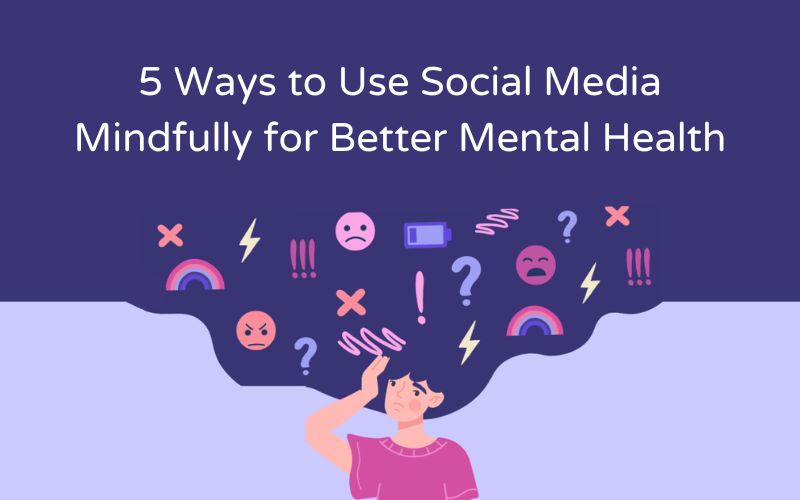Social media has become an integral part of modern life, with billions of people around the world using platforms like Facebook, Instagram, and Twitter to connect with others, share information, and stay up-to-date on the latest news and trends.
{getToc} $title={Table of Contents}
While social media has many benefits, it can also have negative impacts on mental health if not used in a healthy and balanced way.
Social Media can affect mental health
One of the main ways that social media can affect mental health is by causing feelings of comparison and inadequacy. When people see others sharing highlight reels of their lives on social media, it can be easy to fall into the trap of comparing oneself to others and feeling like one's own life doesn't measure up. This can lead to feelings of inadequacy and low self-esteem, particularly for those who are already struggling with these issues.
Social media can also contribute to feelings of loneliness and isolation, even though it is meant to connect people. Studies have shown that people who use social media more frequently are more likely to report feelings of loneliness and social isolation than those who use it less often. This is because social media interactions can often be superficial and lack the depth and meaning of face-to-face interactions, which can leave people feeling disconnected and alone.
Negative impacts on sleep quality
In addition, social media can also have negative impacts on sleep quality. The blue light emitted by screens can disrupt the body's natural sleep-wake cycle, making it more difficult to fall asleep and stay asleep. This can lead to fatigue, irritability, and difficulty concentrating, which can all have negative impacts on mental health.
Causes stress and anxiety
Another way that social media can affect mental health is by causing stress and anxiety. The constant stream of notifications and the pressure to keep up with the latest news and trends can create a sense of constant urgency and the need to be always "on." This can lead to feelings of overwhelm and anxiety, particularly for those who are already prone to these issues.
Use Social Media in balanced way
Despite these potential negative impacts, social media can also have positive effects on mental health if used in a healthy and balanced way.
Here are a 5 tips for using social media in a way that supports good mental health:
- Limit your use: Set limits on how much time you spend on social media each day. Consider using tools like screen time limits or app blockers to help you stick to your limits.
- Be selective about who you follow: Follow accounts that make you feel good about yourself and your life, rather than those that make you feel negative or inadequate.
- Take breaks: It's important to take breaks from social media to give yourself a break from the constant stream of information and to give your brain a chance to rest. Consider setting aside specific times each day or week when you don't use social media.
- Don't compare yourself to others: Remember that what you see on social media is often just a highlight reel of someone's life and may not be an accurate representation of their reality. Focus on your own life and your own achievements, rather than comparing yourself to others.
- Use social media for connection: Social media can be a great way to connect with others, particularly if you're feeling isolated or lonely. Use it to reach out to friends and family, or join groups or communities centered around your interests.
Conclusion
In conclusion, social media has the potential to have both positive and negative impacts on mental health. By using it in a healthy and balanced way and being mindful of the potential negative effects, it is possible to use social media as a tool for connection and positivity rather than a source of stress and anxiety.

